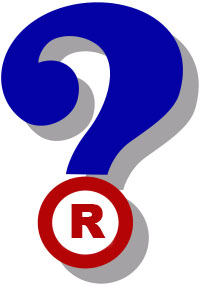
Dear Doc:
My cardiologist says that I need to cut out salt. My copyright lawyer says that salting is useful. What gives?
Signed,
Patient but Confused
Dear PbC:
No wonder you’re confused! You think that doctors and lawyers speak the same language?!? The Doc never heard anything so funny!
Let’s get this straight. Your doctor is talking about NaCl – sodium chloride – table salt. That’s commonly thought to raise your blood pressure when you use too much of it in your food. Don’t do that! (Also don’t order a steak well-done – it says a lot about your character when you do that, just sayin’!)
Your copyright lawyer, on the other hand, is talking about a very old technique used to detect copyright infringement called “salting”. Smart publishers and rights owners do that all the time, and you should, too.
In 1925, the General Drafting Co. published a map of New York state, and inserted the nonexistent town of Agloe. That way, someone who was copying their map could be “trapped” by his own laziness. A few years went by, and a local shopkeeper was looking for a name for new store in the area, and seeing the map, decided to name his shop “Agloe General Store”. A few years later, after learning of the store, Rand McNally added Agloe to its New York map. When General Drafting saw Agloe on the Rand McNally map, it accused the company of copyright infringement, until it, too, learned of the general store. Today, there’s a sign marking the spot, but the store itself is no more. John Green, author of young adult novels, used the town of Agloe as a setting for his book “Paper Towns”.
The practice of creating false streets and towns lost its legal effect in 1997, when courts ruled that such things are not subject to copyright protection. (Alexandria Drafting Co. v. Amsterdam)
Companies that compiled directories and lists used to include fake entries so that they would be able to prove that their work had been copied by competitors. Until Feist Publications, Inc., v. Rural Telephone Service Co., 499 U.S. 340 (1991), copyright protection was given based on the hard work required to gather information. This was known as the “sweat of the brow” doctrine. In Feist, the Supreme Court ruled that facts that were collected, no matter the effort, were not protected by copyright, because there was no “independent creation plus a modicum of creativity” involved (which is what the US Constitution protects.). In addition, today we have computer search engines such as Google, and these make it easy to detect wholesale copying and plagiarism – just ask your high school or college student about “TurnItIn.com“.
It’s amusing, then, to read about a recent claim by the website “Genius” against Google itself! “Genius is the world’s biggest collection of song lyrics and musical knowledge.” The site has thousands of contributors, both musicians and ordinary people, who input song lyrics and other information about music, and discuss that information on line. The site advertises music and profits from the advertising. Today, if you search for a song using Google, you will get a result that includes the lyrics to the song at the top of the results list, in what Google calls a “card”.
Genius suspected that Google was copying its lyrics cards directly from Genius without giving credit, thus depriving Genius of ad revenues. But how, oh how, could little Genius prove its case against giant Google? As it turns out, a dash of salt was just what the chef needed for this recipe!
Most of us don’t pay attention to the difference between straight apostrophes and curly apostrophes (modern word processing software give us a choice and can automatically convert one type to the other.) Genius.com decided to use a mixture of apostrophe symbols in its song lyrics, and inserted them to represent Morse code dots and dashes. When the identical lyrics popped up on Google’s search results cards, Genius accused Google of copying. The message carried in those dots and dashes? “RED-HANDED”. Here’s the video Genius made to show what it did.
Google, for its part, said that it depends on “partners” for lyrics, and that one of those “partners” must have cribbed from Genius, and that they’d look into the issue. The Doc thinks that a small pile of cash will make this issue go away some time soon.
Have a creative work that needs protecting from copyright pirates? The attorneys at LW&H can help with that, as well as with most other intellectual property concerns. Give them a call!
Until next month,
The Doc
— Lawrence A. Husick, Esq.

